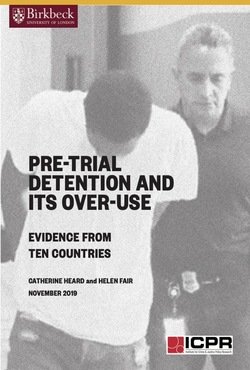By Sandra G. Mayson
ABSTRACT An unaffordable bail requirement has precisely the same effect as an order of pretrial detention: the accused person is jailed pending trial. It follows as a logical matter that an order requiring an unaffordable bail bond as a condition of release should be subject to the same substantive and procedural protections as an order denying bail altogether. Yet this has not been the practice. This Article lays out the logical and legal case for the proposition that an order that functionally imposes detention must be treated as an order of detention. It addresses counterarguments and complexities, including both empirical and normative ambiguity in the concept of “unaffordable” bail. It explains in practical terms what it would entail for a court system to treat unaffordable bail as a detention order. One hurdle is that both legal and policy standards for pretrial detention are currently in flux. Recognizing unaffordable bail as a detention order foregrounds the question of when pretrial detention is justified. This is the key question the bail reform movement must now confront.
69 Duke L.J. 1643 (2020)




